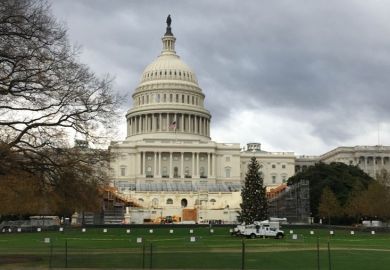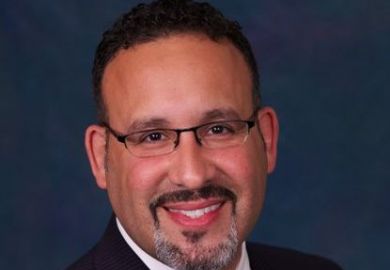The Democrats have taken control of the US Senate with a pair of wins in run-off elections in the state of Georgia, raising prospects of substantial new financial aid for higher education and its students.
Two Democrats, Raphael Warnock and Jon Ossoff, were leading by insurmountable levels with nearly all votes counted. That outcome gives Democrats a 50-50 tie with Republicans in the Senate. Tie votes in the Senate are broken by the US vice-president, also soon to be a Democrat.
The remaining two Senate races in Georgia were seen as key to the ability of Joe Biden, as the new US president, to make progress on a variety of his political priorities, including his promises to eliminate tuition fee costs for the broad majority of college students.
Following the close Georgia vote, however, analysts were acknowledging that Mr Biden’s actual flexibility will be limited by conservative Democrats and the Senate filibuster rule that generally requires a three-fifths majority for controversial measures.
Such Democrats include Senator Joe Manchin of West Virginia, who has a record of voting in support of Trump administration positions more than half the time. Mr Manchin, however, also has a track record both in Congress and as governor of imposing a freeze on state college tuition fees and lowering interest rates on federal student loans.
In the aftermath of the voting in Georgia, Mr Manchin issued a statement urging Democrats and Republicans to work together. “Now, more than ever, we must enter a new era of bipartisanship in Washington,” said Mr Manchin, whose state’s voters supported Mr Trump in November by greater than a two-to-one margin.
Other Democrats with relatively conservative voting records include the two senators from Arizona, Kyrsten Sinema and Mark Kelly.
The result, said Wesley Whistle, a higher education analyst at the New America policy thinktank, may mean that large-scale efforts by Mr Biden and his fellow Democrats to help college students could be limited to emergency coronavirus-related financial relief.
“Unless they vote to get rid of the filibuster, which Manchin has opposed, it is hard to see major higher education legislation getting passed,” Mr Whistle said.
Still, he acknowledged, Democratic party control puts Senator Patty Murray in charge of the Senate’s education committee, where she likely will find ways to push forward changes in taxation and loan policy that would help students.
Robert Shireman, a former Obama administration adviser now serving as director of higher education policy at the Century Foundation, agreed on the importance of Senator Murray’s chairmanship. “A Democratic majority in the Senate completely changes the dynamics of the Biden presidency,” Mr Shireman said.
“At the same time,” he said, “the bare majorities in both the House and Senate mean that every Democrat has leverage – and even, potentially, every Republican.”
Register to continue
Why register?
- Registration is free and only takes a moment
- Once registered, you can read 3 articles a month
- Sign up for our newsletter
Subscribe
Or subscribe for unlimited access to:
- Unlimited access to news, views, insights & reviews
- Digital editions
- Digital access to THE’s university and college rankings analysis
Already registered or a current subscriber?








